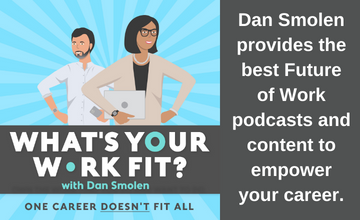Podcast: Play in new window | Download (Duration: 32:08 — 44.2MB)
Anne Holton is a nationally recognized expert on career and technical education. Furthermore, she believes that we must invest in the future of work’s talent pipeline.
Anne built a formidable résumé in workforce empowerment. Now, Virginia’s former Secretary of Education; George Mason University’s former interim president, and; current professor at GMU’s Schar School drives thought-leadership for career empowerment and the future of work.
“I want to research how students choose careers. [My hypothesis] is that students do what their parents do, or what their parents’ friends do, or what their friends’ parents do. But they don’t know career options outside of that. And now, with so many careers that nobody’s parents did, like cybersecurity, we have a real disconnect.”
Along with her husband, U.S. Senator Tim Kaine, Anne leads the charge to provide world-class career and technical education (CTE) so that talent in the American workforce pipeline thrive.
In this episode, Anne discusses:
- What workforce stakeholders are doing, or should be doing, to help people succeed at work. Starts at 2:55
- How those workforce stakeholders should help people in disadvantaged communities. Starts at 5:02
- The role of community colleges in providing career and technical education (CTE). Starts at 7:52
- The efforts of colleges and universities to retain their graduates in the community. Starts at 17:24
- The importance of workforce agility and resilience. Starts at 24:51
Moreover, she believes this: stakeholders in business, academia, and public policy, must amply invest in the future of work’s talent pipeline so that people benefit with rewarding careers. And among the biggest future of work opportunities Anne sees are in middle skill jobs.
About our guest:
Anne Holton grew up in a family committed to public service. Her father, Linwood Holton, is a former governor of Virginia. During her successful career, Anne served as:
- Juvenile and Domestic Relations District Court Judge for the City of Richmond, Virginia (1996-98);
- Virginia’s First Lady when her husband, Tim Kaine, was governor (2006-2009);
- Virginia’s Secretary of Education (2014-2016), and:
- Interim President of George Mason University (2019-2020).
Currently, she is Professor of Public Policy and Education for GMU’s Schar School of Policy and Government.
Anne earned a bachelor’s degree from Princeton University’s School of Public and International Affairs and a Juris Doctorate from the Harvard University School of Law. She and U.S. Senator Tim Kaine reside in Richmond, Virginia.
EPISODE DATE: September 25, 2020
Social media:
